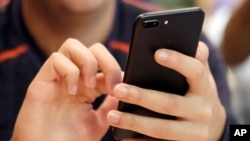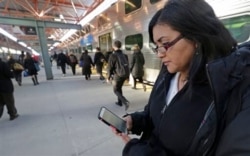Student Union
Millennial Life: Eat, Sleep, Work, Screens

Would you give up nearly a decade of your life looking at your cellphone?
Calculated by today’s usage, the average person spends a little over 76,500 hours – or 8.74 years – on a smartphone over a lifetime, according to a recent study by a mobile device comparison site, WhistleOut.
Unsurprisingly, millennials (born 1981 to 1996) spend the most time on their phones with an average of about 3.7 hours per day. When subtracting the average sleep time for adults (around nine hours), this amounts to almost one-fourth (23.1%) of their waking lives on a screen.
Generation X (born 1965 to 1980) comes in second with an average of about three hours per day, which amounts to 16.5% of their waking lives. Boomers (1946 to 1965) spend the least amount of time on their phones, with an average of 2.5 hours per day, factoring to about 9.9% of their waking lives.
However, the new generation, Generation Z (born after 1996), seems to dominate their precursors in smartphone usage and screen time: 95% of teens age 13 to 17 reported having a smartphone or having access to one, and 45% reported they are online constantly, according to a 2018 Pew Research study.
In a Twitter thread by a popular American YouTuber, Mr. Beast, fans shared their screen time reports, including how many hours they spend on their phones and what apps they used the most. Some reported screen time of well over 10 hours a day.
The majority of teens aged 13 to 17 (91%) say they use their phones to pass time, but a large share of them also say they use them to connect with others (84%) or learn new things (83%), according to Pew Research.
This widespread usage of smartphones has sparked worries among teens themselves, with 54% of U.S. teens saying they spend too much time on their phones. And 52% have also reported trying to take steps to reduce mobile phone use.
A JAMA Network study found that only 5% of 59,397 U.S. high school students surveyed spent a balanced time sleeping and staying physically active while limiting screen time.
Too much time on a phone has been linked to a number of physical and mental health risks.
In a study of 3,826 adolescents, researchers found an association between social media and television use with symptoms of depression, according to JAMA Pediatrics.
Increased screen time has also been linked with a higher risk of obesity and diabetes.
See all News Updates of the Day
- By VOA News
Michigan State international students get their own space

Michigan State University in East Lansing, Michigan, is setting aside a space in the International Center for international students.
Nidal Dajani, vice president of the school's International Student Association, said that the club plans to use the space to host events and hopes to collaborate with other student groups.
- By Dylan Ebs
International students find community during Pride Month

For LGBTQ+ international students, Pride Month, observed in June, is a unique time to reflect.
They hold on to multiple identities — both their LGBTQ+ identity and their cultural background — but coming to terms with them is not always easy.
For graduate student David Zhou, these identities can feel conflicting as transgender rights in China remain a controversial issue and spaces for LGBTQ people close. Zhou, 25, is transgender and pursuing an education in the STEM field at an urban university in the Midwestern United States.
VOA is using a pseudonym for Zhou’s first name and is not naming his university to protect his identity due to safety concerns back home in China. Zhou is not open about his transgender identity to his family.
During Pride Month, Zhou said he attended multiple LGBTQ+ events in his community and is surrounded by a supportive group of LGBTQ+ students who can relate to his experiences. But he’s not open about his identity to everyone on campus and said he doesn’t disclose his preferred pronouns to everyone to avoid transphobic comments.
“I feel like I have to make some judgments of the character of that person to see if they’re a good person to disclose [my identity] to,” Zhou said.
Zhou’s Pride Month celebrations included attending local markets with LGBTQ+ vendors and hanging out with his LGBTQ+ friends.
“They normalized being trans and for a long time I feel like trans identity is, should I say a vulnerability, brings me fear and worrying about discrimination, but having those events are helpful because it allowed me to see that queer people could just [live] openly,” he said.
At social events where few international students are present, Zhou said it can be tough to fit in.
“There's a lot of times like when they were talking about things I kind of, don't really understand, mostly because I kind of lack some background experience or knowledge,” he said.
Zhou said he is not aware of specific groups for LGBTQ+ international students at his university, but said international students are more prevalent in graduate programs and therefore find representation in organizations for LGBTQ+ graduate students.
In China, transgender individuals must obtain consent from an “immediate family member,” even for adults hoping to transition, which critics say limits the autonomy of transgender individuals while supporters say the policy protects doctors from violence by upset parents.
Struby Struble, a former coordinator of the University of Missouri LGBTQ+ Resource Center, told NAFSA: Association of International Educators in 2015 that LGBTQ+ international students face a “double barrier” on campus.
“With their international student friends, they feel isolated because they’re the LGBT one,” she said. “But then among the LGBT students on campus, they feel isolated because they’re the international one.”
Nick Martin, associate director of the Q Center, Binghamton University’s LGBTQ+ student support office, said when international students tour the center, there’s often a sense of hesitation as they enter a type of space that may not be present in their home country.
“I compare that to a year in after they've come into the space, they've again, maybe come to some of our events, they've got more connected,” he said.
Martin said graduate students have a unique interest in the Q Center as they may use the office for research and advocacy purposes that align with their studies.
“For older students, there may be hesitancy in a different way, but I think it's more in the vein of they want to do some of the advocacy work,” he said.
Martin said he thinks about how both his office and BU’s international student office can support students who come from countries with few — if any — protections for LGBTQ+ individuals.
“It's been a learning process of what those students really need, but I think I've kind of learned that a lot of students are just looking for the safe space that we offer,” Martin said.
- By VOA News
International students discuss US campus culture shock

International students at De Anza College in Cupertino, California, talked about culture shock in an article in La Voz News, the student newspaper.
"It felt like a major culture shock. Everything was so different, from academics to mannerism," said a student from Mexico.
Read the full story here.
These are the most expensive schools in the US

High tuition costs along with housing and food expenses can add up for students at U.S. colleges and universities.
MSNBC looked at the most expensive schools in the country, with one costing more than $500,000 for a bachelor’s degree. (June 2024)
Uzbekistan students admitted into top US universities

Students from Uzbekistan are among the international students admitted to top colleges and universities in recent years.
Gazata.uz profiled some of the Uzbekistan students attending Harvard, Brown, Princeton and other U.S. universities. (June 2024)







